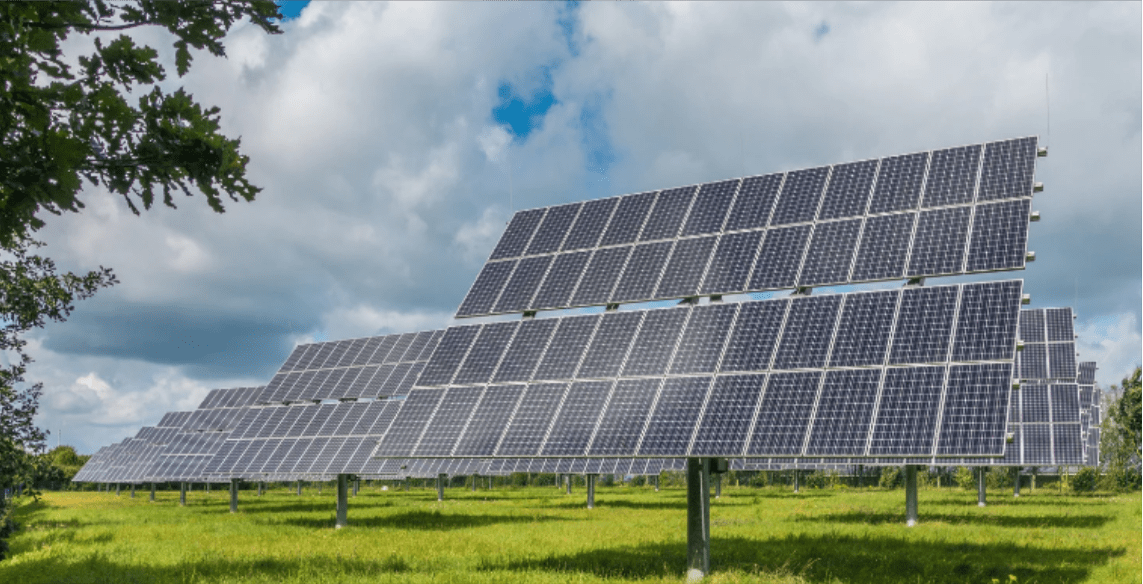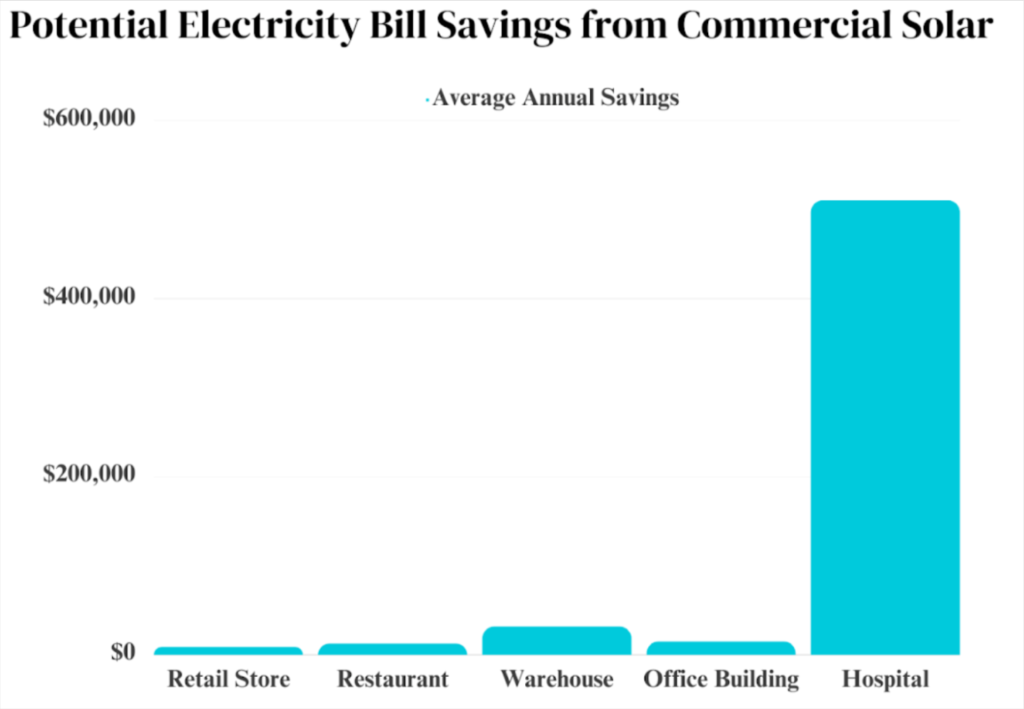
Installing solar panels on your commercial property can yield significant financial benefits that impact your bottom line. As a business owner, thoroughly understanding these monetary benefits can help you make an informed data-driven decision about investing in and going solar.
When it comes to your company’s energy costs and sustainability initiatives, solar power should absolutely be on the table for consideration. At this point, it may be worth exploring opportunities to generate solar leads for a professional assessment. There are compelling financial arguments for commercial solar that outline a clear return on investment.
This article will dive into the top 10 financial benefits of adopting commercial solar power. From tax credits and electric bill savings to increased property value and income streams, commercial solar offers short and long-term economic incentives.
Carefully evaluating all these factors will demonstrate how impactful on-site solar generation can be for your organization’s financial future and energy resilience.
1. Investment Tax Credit
The federal Investment Tax Credit (ITC) allows businesses to deduct 26% of the cost of installing a solar energy system from their federal taxes. You can claim the ITC the year your solar system is placed into service.
This tax credit was recently extended through 2032. Many states also offer additional tax credits and incentives on top of the federal ITC.
For example, New York offers a 25% tax credit while Arizona provides up to $1 million in credits. The ITC can drastically reduce the payback period for a solar installation from 20 years down to just 3-4 years.
When claiming the ITC, be sure to use reputable commercial solar installers for your organization.
2. Operational Cost Efficiency
Solar energy systems provide electricity at a fixed rate that is often lower than fluctuating utility rates. This allows businesses to stabilize and reduce their electric bills.
Solar energy is also exempt from utility demand charges, which are based on peak energy usage and can account for 30-70% of a commercial utility bill. Avoiding these demand charges provides significant and predictable savings.
To accurately estimate potential cost savings, have one of the top commercial solar installers for organizations that will provide a solar analysis based on your actual electrical usage.

Data source: SEIA Solar Means Business Report
3. Quick Return on Investment
The savings from lower electricity bills and tax incentives can provide a complete return on investment in commercial solar projects within 3-7 years.
The solar system will then continue producing free electricity for another 25-30 years. For a 500 kW system, businesses can expect over $15 million in electricity savings over 35 years.
4. Increased Property Value
Installing solar demonstrates environmental leadership and commitment to sustainability. This boosts your reputation and can increase your property’s value.
Data shows commercial buildings with solar sell for about 10-25% more than comparable properties without solar.
5. Net Metering Savings
With net metering, excess solar electricity produced during sunny times can offset electricity drawn from the grid during nighttime.
This allows businesses to maximize savings on their utility bills. Any net excess generation at the end of the billing cycle is then credited or paid out.
6. Income from Selling Solar Credits
Once a solar system has produced more electricity than a business needs, the excess solar renewable energy credits (SRECs) can be sold to the utility company.
SRECs can provide thousands in additional income annually. As an example, Massachusetts SREC prices currently range from $285 to $305 per credit.
7. Enhanced Sustainability
Installing solar panels reduces a business’s carbon emissions by over 230,000 pounds per year for a 500 kW system.
This supports sustainability initiatives and demonstrates environmental leadership to customers and employees. Going solar improves public perception and helps attract environmentally conscious consumers.
8. Increased Employee Productivity
Employees increasingly expect companies to be environmentally responsible. Installing solar shows a commitment to sustainability that makes a company more attractive to top talent.
Sustainability programs also boost employee morale, satisfaction, and productivity.
9. Support Local Economy
Choosing a local solar installation company keeps investment within the community. In addition, solar projects generate local jobs in installation, maintenance, and financing.
A 500 kW solar system creates over 50 local jobs. This stimulates the local economy.
10. Affordable Financing Options
Solar loans, Power Purchase Agreements (PPAs), and Property Assessed Clean Energy (PACE) financing allow businesses to go solar with no money down.
PPAs let you purchase on-site solar power at a fixed rate lower than your current utility without upfront costs. This removes cost barriers to adopting solar.
Key Takeaways
- The federal ITC offers a 26% tax credit for commercial solar investments. Many states provide additional incentives.
- Solar energy can yield better than a 10% annual return on investment through electric bill savings and income from solar credits.
- Net metering and the elimination of demand charges provide powerful utility bill savings with solar.
- Solar systems boost property value and demonstrate sustainability leadership.
- Local solar installation creates jobs and keeps investment in the community.
Frequently Asked Questions
How quickly does commercial solar pay for itself?
With incentives and bill savings, most commercial solar power systems pay for themselves within 3-7 years. The return on investment time frame depends on system size, electricity costs, and available solar incentives.
What are the biggest financial benefits of commercial solar?
The Investment Tax Credit, operational cost savings, increased property value, and income from selling excess solar credits provide the largest financial benefits for commercial solar power.
What financing options are available for commercial solar?
Businesses can take advantage of solar loans, Power Purchase Agreements (PPAs), Property Assessed Clean Energy (PACE) financing, and other options to go solar with no money down. The best option depends on your business’s financial situation.
Can my business make money with a commercial solar installation?
Yes, businesses can earn income by selling excess solar renewable energy credits (SRECs) to their utility company once their solar system produces more electricity than they need. SREC income provides a revenue stream on top of electric bill savings.
How does commercial solar improve sustainability?
Solar energy reduces a business’s carbon emissions and environmental impact. This supports sustainability initiatives and demonstrates leadership to customers and employees. Going solar improves public perception.
Conclusion
Installing solar panels on your commercial property provides significant financial benefits in addition to environmental ones. Tax credits, electric bill savings, increased property value, and income from selling excess energy make solar a smart investment.
With financing options available, the benefits of commercial solar power are accessible to businesses of all sizes. By harvesting sunlight for electricity, companies can realize a return on investment in solar while supporting sustainability.



